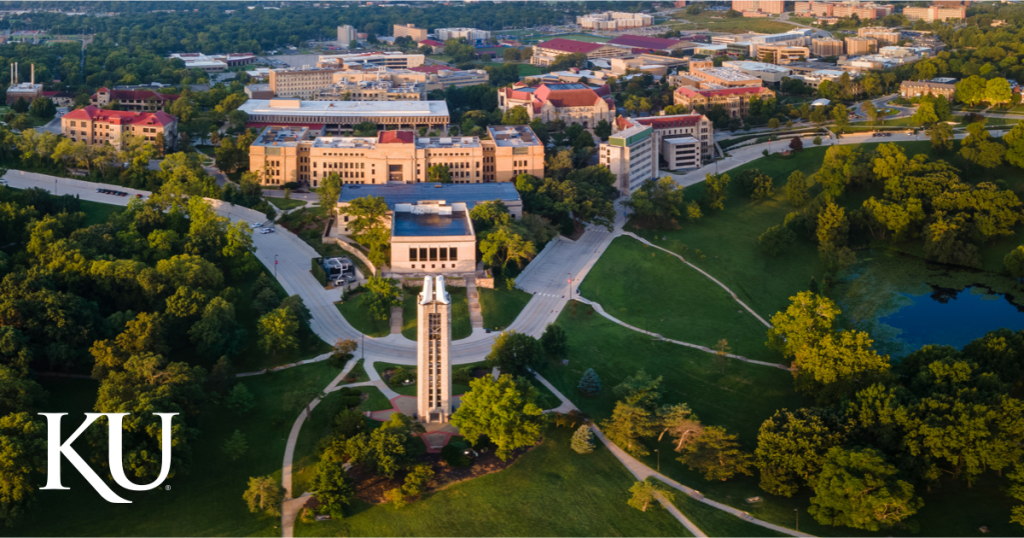In Kansas, there are two CRNA programs and the University of Kansas offers one of them.

Address: University of Kansas Medical Center – 3901 Rainbow Blvd, Kansas City, KS 66160
Phone: 913-588-6612 • 711 TTY
Contact: Karri L. Arndt, DNP, CRNA – Department Chair – karndt@kumc.edu
Shelley D. Barenklau, DNP, CRNA – Clinical Assistant Professor – sbarenklau@kumc.edu
This is a 36 month long program (81 credit hours) where you’ll receive a doctorate in Nurse Anesthesia upon successful completion. The standard application deadline is July 15th and the early decision application deadline is May 15th.
This is a very extensive program that will not only make you a nurse anesthetist and prepare you to take the national certification exam but also become a leader in the field. There are usually around 100 applicants for this program every year, however, the school only admits approximately 24 students. The attrition rate in 2018 was 4%, however, between the period of 2019 to 2023, the attrition rate was an impressive 0%. The overall employment rate within 6 months of graduating is between 94% to 100%.
In 2023, this program had a 81% first time pass rate (for the NCE exam).The average GPA upon graduating in 2023 was 3.82 and 3.89 in 2022.
This program was ranked #48 in the 2011 U.S. News & World Report and #29 in the 2016 report. In the 2024 (current) report, it is ranked #22 which is a significant improvement.
If you are a Kansas resident, then the total cost of tuition and related fees (e-learning fee, course fee, on campus fees etc) is currently $70,494.82.
If you are a non-Kansas resident, then the total cost of tuition and related fees is currently $93,177.02.
Do note that these fees are subject to change by the university and Kansas Board of Regents.
In order to qualify for this program, you’ll need to be a registered and licensed nurse for a minimum of 2 years. When you apply to the program, you need to have at least 1 year of experience within the last 2 to 3 years before your application date along with experience in intensive care. If you have LPN experience, this won’t be sufficient to meet this program’s requirements.
Once you have been accepted into this program, you’ll need to get a RN license for Kansas, Oklahoma, Nebraska and Missouri before the program starts at the end of May. The license needs to be unrestricted to be accepted.
Another point to note is that you don’t need to have a Bachelor degree in nursing to be eligible. You will need to have a Bachelor’s degree, but it can be in nursing or any other suitable area. Some acceptable bachelor’s degrees include Sociology, Respiratory Care, Health care administration, Pharmacology, Psychology etc. That said, you will need to have critical care experience to qualify.
The application deadline is August 1st and you will need to have all the prerequisites met by that time to receive preferential treatment.
You will need to have a GPA of 3.0 on a 4.0 scale in the following prerequisite courses (5 science classes):
Note that all these prerequisite courses need to be done at an accredited university/college that are eligible for transfer to the University of Kansas. Even if you get pass grades at the university/college, the minimum pass grade needs to be a grade C or higher in equivalency.
ACLS – Advanced Cardiovascular Life Support
PALS – Pediatric Advanced Life Support
BLS – Basic Life Support
CCRN (This is not required but is highly recommended)
Acceptable critical care experience (with most successful applicants):
Unacceptable critical care experience:
Additionally, if you want to apply to the KU CRNA program, you need to have sufficient experience with EKG interpretation, continuous hemodynamic monitoring, pharmacological monitoring, ventilators as well as be able to independently make decisions when taking care of unstable patients.
What can give you an edge over other applicants is participating in voluntary or professional organizations such as non-profits, hospitals etc.
The University of Kansas was granted a 10 year accreditation from the COA which will be up for review again in June, 2030.
According to past interviewees, the interviewers were quite friendly and many of them were not asked clinical questions. Some were asked about their job, ambitions for the future, how they resolved problems at work, family etc.
Past interviewees indicated this was a two panel interview (8 faculty members as well as two students in their 3rd year). You can also expect two tests (one is mathematically based and the other was written). However, KU typically emails you the topics/areas you should review beforehand. In between the two interviews you can expect to interact with current students who will answer any question you have about the school and program.
Some questions that were asked according to past interviewees:
CRNA salaries in Kansas range from $190,812 to $221,527 with the average being $205,205 according to Salary.com. According to Ziprecruiter, the average yearly salary is $231,355. On Glassdoor, the reported range is $150,000 to $229,000 with the average being $185,000 per year.
Unsure if KU is the right CRNA school? Check out the other schools here.